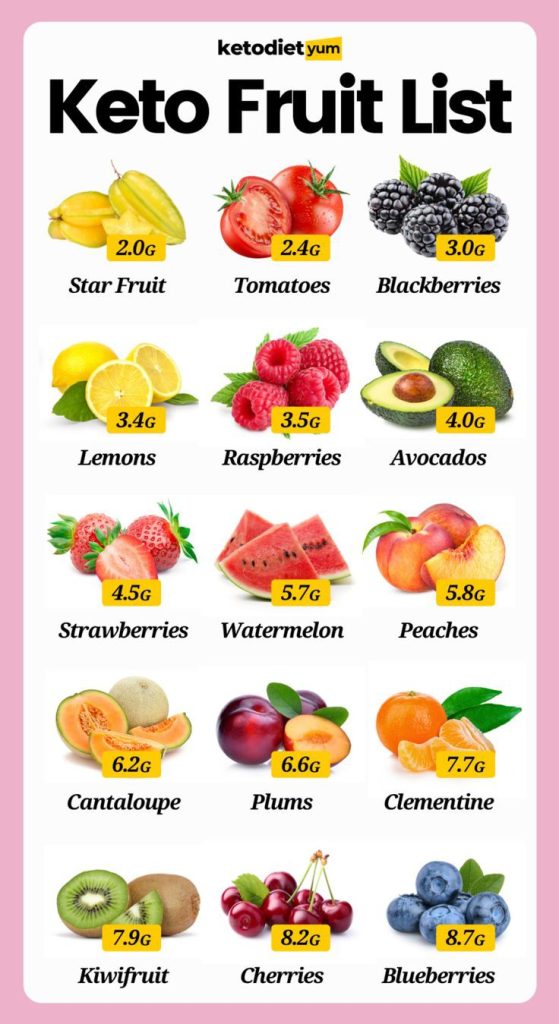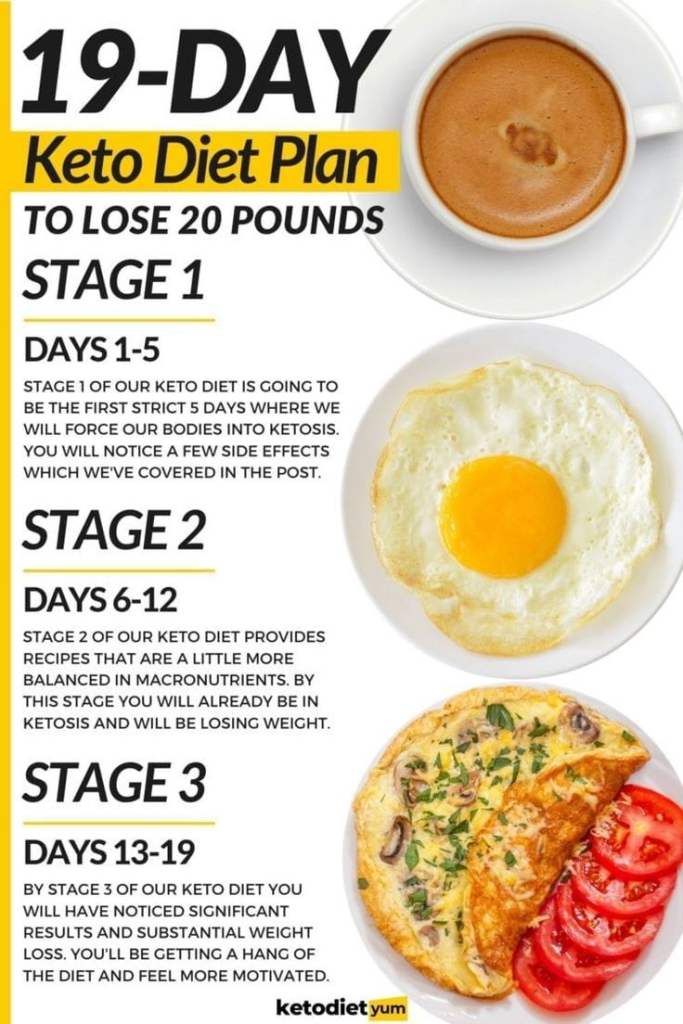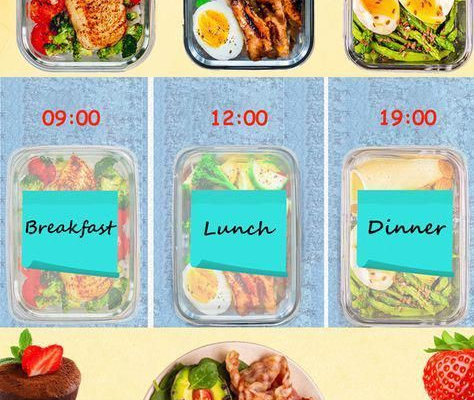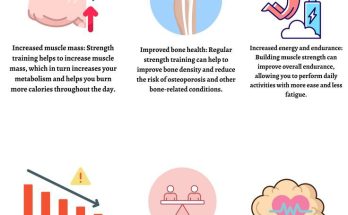Pros and Cons of Keto diet in athletes are numerous. In this article, we will be looking at a few. Just as it has its advantages, so does it have disadvantages.
Keto diet (ketogenic diet) is a low-carb, high-fat diet. It involves consuming a small amount of carbohydrates and replacing it with fat to help burn the fats in your body to energy. It can also burn fat into ketones in the liver which can supply energy for the brain. This process of breaking down fat for energy is called Ketosis.

The current version of the keto diet allows you about 20% protein but restricts carbohydrates to 10%.
Northwestern Medicine, whilst explaining the Breaking Down of the Keto Diet said
“The keto diet is all about cutting carbs and eating more fat. Here’s what the daily breakdown of carbs, protein, and fat looks like:
- 5 percent of calories from carbohydrates, including low-carb, non-starchy vegetables and small amounts of leafy greens. The keto diet excludes carb-rich foods like grains, beans, fruits, and starchy vegetables.
- 20 percent of calories from protein, such as meat, eggs, and cheese.
- 75 percent of calories from fat, such as oils, unprocessed nuts, butter and avocado”.
Eating between 20g and 50g of carbohydrates each day would take you two to four days to enter ketosis. However, the time it takes for this to occur varies based on several factors such as (age, carbohydrate, fat, and protein intake, physical activity level, sleep health metabolism, and stress level.
If you eat a high-carb diet before starting a keto diet, it may take you longer to reach ketosis than someone who consumes a low-carb diet. Do you know why? Because your body needs to exhaust its glucose first.
Different types of keto diet.
There are numerous classifications or types of keto diets, a few of them include.
- Standard ketogenic diet.
- High protein ketogenic diet.
- Cyclical ketogenic diet.
- Targeted ketogenic diet.
- Very low-carb ketogenic diet.
- MCT ketogenic diet.
- Calorie-restricted ketogenic diet.
- Etc.
Pros and Cons of Keto diets in athletes.
Keto diet has amazing health benefits (Pros) for athletes, but in the same manner, it has its disadvantages (cons). Below is an outline of both the benefits and disadvantages.
Benefits (Pros) of the keto diet in athletes.
Research has shown that the keto diet has a lot of health benefits besides weight loss, and can help manage certain medical conditions like epilepsy, acne, etc. It can also help build muscles, boost satiety, and reduce abdominal fat.
- Weight loss: Weight loss is first on the list. It is generally the reason for a keto diet. The ketogenic weight loss by boosting metabolism and reducing appetite. Ketogenic diets can help patients lose about 2 kg more than low-fat diets do in one year. Keto diets help athletes burn fat and preserve muscle mass.
- Reduction of abdominal fat: The Keto diet reduces abdominal fat by reducing insulin levels. Insulin levels are lower and can help to reduce the amount of fat stored in the abdominal area. The keto diet also helps athletes burn more fat by increasing their metabolic rate.
- Boosts satiety: Keto diet can help boost satiety by increasing protein intake. Protein is satiating and the keto diet allows for higher proteins. Carbohydrates can also increase satiety. Keto diet can help to stabilize blood sugar levels and keep hunger at bay by limiting carbs.
- Improves health markets: Keto diet can improve health markers such as blood pressure, triglyceride, and Cholesterol levels. Research has shown that the keto diet can also help to reduce systolic and diastolic blood pressure. It can also lead to a reduction in cholesterol and triglyceride. These can lead to a lower risk of cardiovascular disease and other health problems.
- Improves athletic performance: The keto diet can increase the body’s ability to break down fat for fuel which can lead to increased endurance in athletes. It can also improve insulin sensitivity which helps the body to better utilize the glycogen stored in the muscles. This leads to improved performance during high-intensity exercise. Keto diet also leads to inflammation.
Disadvantages(Cons) of the keto diet in athletes.
Below are a few Cons of keto diets in athletes.
- Nutrient deficiency: A keto diet is very restrictive and can lead to a lack of essential nutrients such as vitamins and minerals. Many athletes are even advised to avoid whole grains, starchy vegetables and even fruits and these could lead to a lack of fiber and other important nutrients. Many other athletes rely on low-carb diets and processed meats which may be lacking in important nutrients as well, such as magnesium and Vitamin B.
- Highly restrictive and difficult to follow: Keto diet can be difficult to follow as it requires dedication, adherence, consistency, and endurance. Being a strict (restrictive) diet, it can cause rebound weight gain because people tend to crave for the foods they are avoiding.
- Reduction in athletic performance: The body takes time to adapt or adjust to using fat for fuel (energy) and while it is in this stage, performance may decline. It is a short-term reduction in athletic performance and can be called “Keto flu“.
- Side effects: An athlete could experience the downside (side effects) of the keto diet during its initial stages as the body tries to get accustomed to ketosis. Some of these side effects include:
- Fatigue: As the body is adjusting to the use of fat as its primary source of energy, it could cause fatigue (tiredness, lack of energy, and difficulty in concentration) in athletes.
- Muscle cramps: This is caused by electrolyte imbalances because the keto diet can cause the body to excrete electrolytes such as sodium, potassium, and magnesium.
- Gastrointestinal upset: Gastrointestinal upset such as nausea, constipation, and diarrhea is often caused due to changes in the diet and the body’s adaptation to ketosis.
- Keto breath: Keto breath is a bad breath caused by the production of ketones. It is temporary and goes away as the body adjusts to the diet.

List of Foods to Eat on a Keto Diet as an Athlete.
If you are an athlete planning to start a keto diet after you are done reading this article, then you might want to start with some of these low-carb, high-fat foods whilst observing the Pros and Cons of Keto diet in athletes.
Fats (primary source of energy).
- Avocado.
- Nuts and seeds.
- Cashews, almonds, and walnuts.
- Coconut milk.
- Coconut oil.
- Olives and olive oil.
- Butter and ghee.
Vegetables (vitamins and minerals)
- Carrots.
- Tomatoes.
- Celery.
- Cauliflower.
- Broccoli.
- Mushrooms.
- Eggplant.
Protein
- Tofu.
- Fish.
- Seafood.
- Chicken.
- Red Meat.
- Eggs.
Others include.
- Unsweetened coffee and tea.
- Unsweetened sparkling water.
- Dark chocolate.
- Berries.
Conclusion.
Pros and Cons of Keto diet in athletes have been listed above and we can see that it’s quite a healthy choice for athletes to lose weight, boost satiety (fullness), improve health markers, reduce abdominal fat, and improve athletic performance.

A ketogenic diet is a short-term diet that is focused on weight loss rather than health benefits.
The Keto diet is most often used to lose weight but it can also help to manage certain medical conditions like epilepsy, heart disease, and even acne in patients as well as build muscle, reduce abdominal fat, and boost satiety in athletes.



